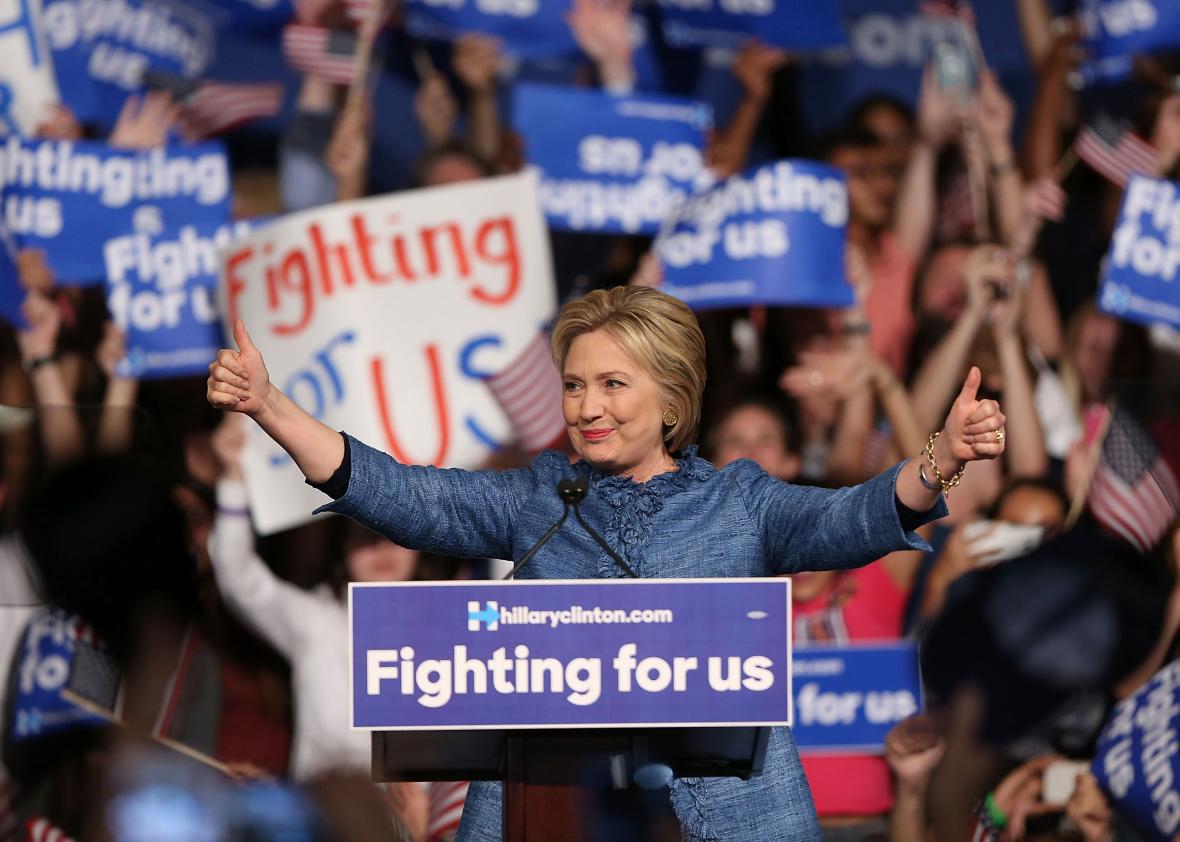Let it be known: Hillary Clinton now supports a federal $15 minimum wage, but with conditions.
Clinton, who has taken heat from progressive activists for declining to support a simple, $15 pay floor, tied herself in knots attempting to explain her position on the issue during last week’s Democratic debate. First, she told the crowd that if Congress sent her a bill raising the federal minimum to $15 an hour, she would “of course” sign it. But then the candidate suggested she’d prefer a compromise approach, similar to a bill recently passed in New York state. Finally, her campaign blasted out a press release stating that Clinton “supports a $12 federal minimum wage,” but would encourage some states and cities to go higher—her known position going into the evening.
Again, all of this weaving about contrasted rather poorly with Bernie Sanders’ easily understood position, which is that the U.S. should have a $15 minimum wage. Period.
This weekend, on ABC’s This Week with George Stephanopoulos, Clinton took another shot at clarity. She was more successful:
You know, George, I know everybody wants to make this some kind of big contrast. Well, it isn’t. You know, Bernie Sanders came out and said the legislation passed in New York was a model for the nation.
And you know what model is?
That model is a phased in minimum wage increase to get to $15 in the city and surrounding areas, to get to $12, $12.50 upstate, but to be constantly evaluating the economic conditions so that there is no unintended consequence of lost jobs.
That has been my position. And that is exactly what New York just voted for. And for federal legislation, if it has the same kind of understanding about how we have to phase this in, how we have to evaluate it as we go, if the Congress passes that, of course I would sign it.
Let us set aside the question of whether this really has been Clinton’s position all along (if so, it’d be news to me). New York’s law is a fascinating compromise between labor activists who have pressed for a higher minimum and politicians who worried that poorer and rural regions upstate might not be able to handle the same wage scale as Brooklyn or Manhattan. It guarantees a $15 minimum in the five boroughs and their nearby suburbs. But it would only raise the minimum to $12.50 for non-fast-food workers upstate by 2020. After that, “state officials will analyze the economic effects of the increases before scheduling any more,” as the New York Times has explained it.
In short, New York state’s $15 minimum is not a guaranteed statewide $15 minimum. And that’s the model Clinton wants to follow.
And it’s a smart approach. The United States is big country with vastly different regional labor markets. It’s somewhat unclear whether wealthy, coastal cities are prepared to deal with vastly higher wage scales. But it’s even less obvious that Louisiana or Arkansas would cope well with an increase to $15. Given that we’re talking about a policy change that would affect more than 40 percent of all American workers—meaning it involves both higher potential risks and rewards than your typical, more modest minimum wage hike—some caution seems due.
